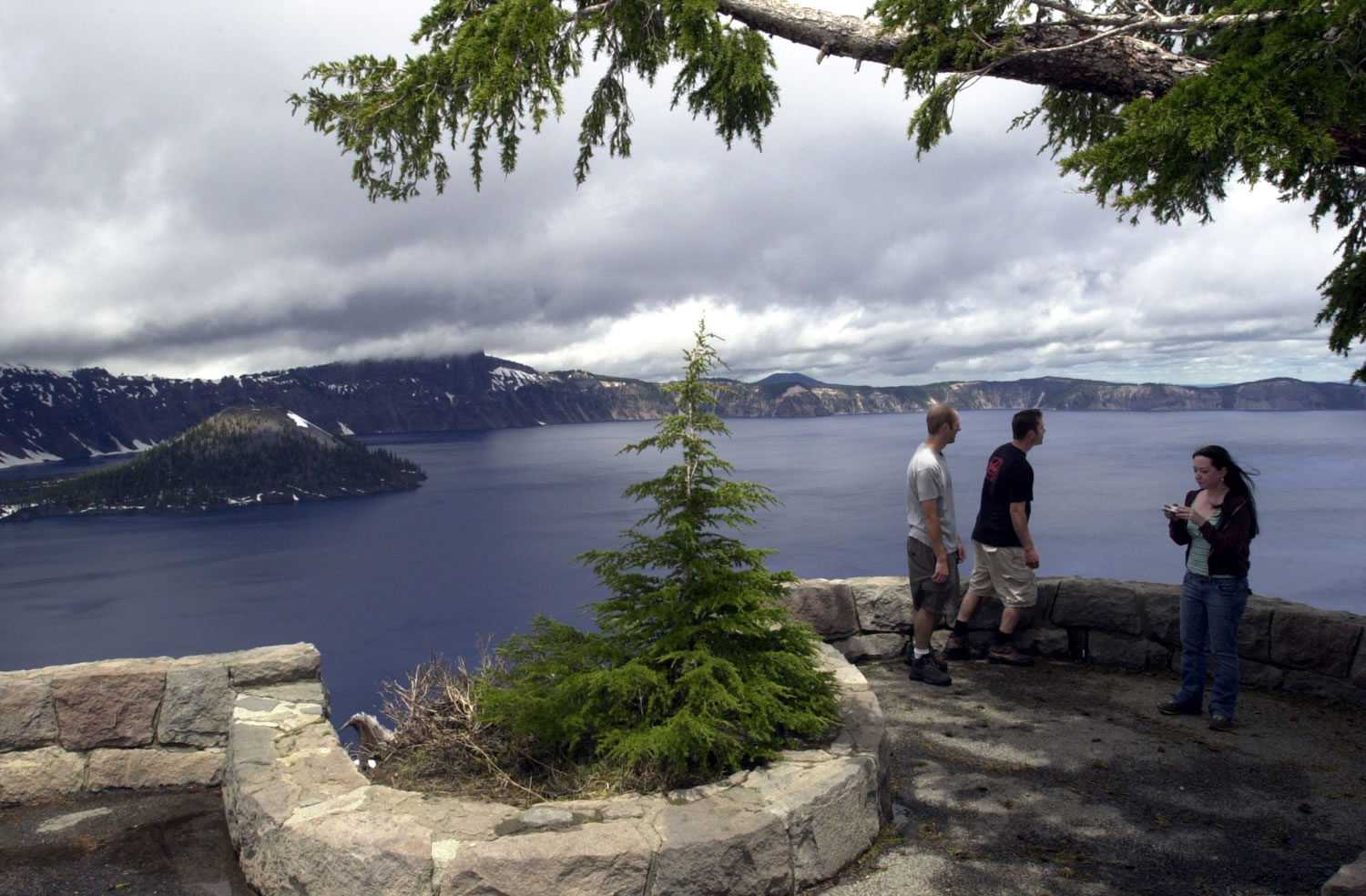GRANTS PASS, Ore. — National park officials on Wednesday temporarily closed Crater Lake to scuba diving over the threat that invasive species could muddy one of the clearest natural bodies of water in the world.
The closure will remain in effect while rules are developed to be sure species including plants, water fleas, quagga mussels and viruses don’t hitchhike into the pristine lake waters on diving gear, said park Superintendent Craig Ackerman.
Though only about 10 people a year dive in the lake, it is becoming more popular, park officials said. The September issue of Travel + Leisure magazine listed Crater Lake as the nation’s top lake scuba diving destination, despite the fact divers have to carry their gear down a long steep trail to reach the water.
“The amount of use we are talking about is small,” said park aquatic ecologist Mark Buktenica. “The risk is pretty small because of that. But the consequences could be quite high.”
Lying in the caldera created by the collapse of a huge volcano more than 7,000 years ago, Crater Lake is the nation’s deepest and clearest lake. It currently holds the world record for water clarity — 140 to 142 feet of visibility straight down, Ackerman said.
Buktenica is already dealing with rainbow trout, kokanee salmon, and crawfish introduced into the lake by park staff more than a century ago in an attempt to increase the attraction to tourists.
The trout eat a native newt, which already has a tough time making a living. The salmon eat zooplankton, which affects the balance of microscopic plant life in the lake. And the fish and crawfish defecate in the lake, providing nutrients to other organisms. All this affects the water clarity, Buktenica said.
Park officials are considering requiring divers to get a free permit before going in the lake, which would offer a chance to clean their gear of any invasive species and educate divers about the different demands of diving at high altitude. The lake surface is at 6,173 feet.
Cleaning gear in saltwater or chlorinated water, and letting it fully dry, would be all that is required to kill hitchhiking organisms, Buktenica said.



